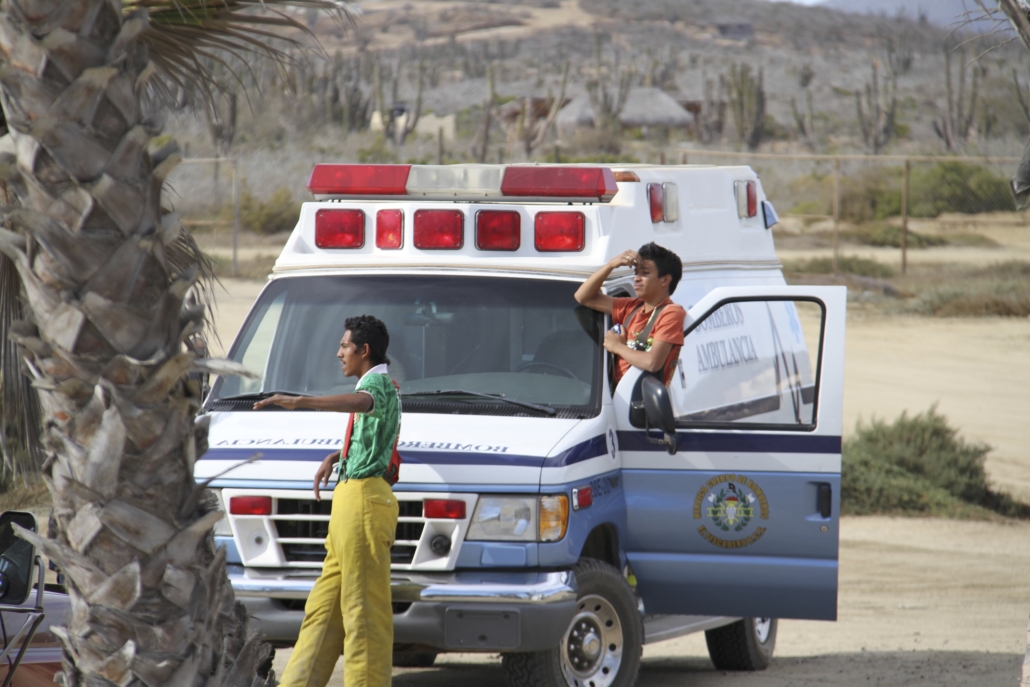Carbon Monoxide Deaths at Airbnb’s and Vacation Rentals
Preventable carbon monoxide deaths at Airbnb’s and other short term vacation rentals continue to happen because of lack of mandates for CO alarms. Carbon monoxide alarm must at a minimum be everywhere people sleep.
By Rebecca Martin
Vacation lodging, prior to 2008, encapsulated several options; from hotels, motels, and motor courts to short-term rentals of time shares and home style B&BS scattered across the country. In 2008, the face of vacation rentals changed with the creation of Airbnb, the first large scale peer-to-peer rental service. Airbnb was started in San Francisco and rapidly spread as homeowners took advantage of the possibility of rental income from their primary residences. Before Airbnb, homeowners who benefitted from peer-to-peer rentals were usually those who owned second homes in popular vacation spots such as ski resorts or beach locations. Now Airbnb and VRBO are household names and often the first stop for vacation planning.

Preventable carbon monoxide deaths at Airbnb’s are largely the result of failure to have carbon monoxide alarms in all vacation rentals.
This growing trend echoes a society where side hustles have risen in status and renters have discovered multiple uses for peer-to-peer services. PTP rentals are used for event, wedding, and alternative accommodations regularly, and are no longer relegated to vacation hotspots. The growth of the industry has outpaced consistent regulations and many cities and states regulate them differently. Some cities prohibit short term rentals, some require licensing or permits, and tax jurisdictions can vary on calculating local occupancy taxes.
Short Term Rentals Need Stronger Regulation
While Airbnb and VRBO are not the only entities offering PTP rentals, they are probably the first that come to mind. But there are many others that have joined the market since the inception of the concept.
With the rapid rise of PTP rentals, it should be no surprise that 19 people have lost their lives in incidents involving carbon monoxide poisoning since 2013 worldwide while the number of non-fatal incidents is unknown. According to an article by NBC, https://www.nbcnews.com/tech/tech-news/airbnb-carbon-monoxide-poisonings-detectors-rcna105634 carbon monoxide detectors are not a universal requirement for hosting properties. In 2014, Airbnb made a commitment to require carbon monoxide detectors in all of their hosting properties. Despite their commitment, a decade later there is still no mandate requiring that carbon monoxide detectors are installed in every hosting property.
Airbnb is currently facing three lawsuits involving carbon monoxide deaths and has been named in other cases involving 17 of the deaths due to carbon monoxide poisoning.
“Airbnb has issued statements in seven of the cases, which accounted for 17 of the deaths. In five of the statements, Airbnb said it would pay for costs associated with the deaths or that it had removed Airbnb listings associated with the incidents. None of the statements contested details of the reports surrounding the deaths, and none addressed carbon monoxide’s role in the incidents. Other statements expressed condolences.” https://www.nbcnews.com/tech/tech-news/airbnb-carbon-monoxide-poisonings-detectors-rcna105634
Carbon Monoxide Deaths at Airbnb can be Prevented
But family members and representatives of those who died from carbon monoxide poisoning want Airbnb to enforce a mandate requiring all hosting properties to have adequate carbon monoxide detection.
One might think this is just the logical step to take but it is rather difficult when speaking of the hospitality industry in general. In the United States, the American Hotel and Lodging Association (AHLA) encourages its members to have carbon monoxide detectors in hotel rooms, but hotels are regulated by applicable state and local fire, mechanical and CO detection codes and may not be required to have detectors in place. In some places, detectors are required but may not be required in every space where a guest or guests might be sleeping. Detectors might be required in all new construction while existing venues might find detectors optional. When we expand our examination to the international presence of Airbnb’s, it is apparent that relying on local regulations and codes is not enough, not in the United States and certainly not worldwide. Is it enough that Airbnb discontinues the membership of a hosting property once guests are fatally poisoned? Does the view Airbnb holds that these are isolated incidents justify the absence of a mandate for carbon monoxide detectors to be present in all hosting properties? What is an acceptable risk?
To date, carbon monoxide fatalities have occurred outside of the United States, but there is very little accounting of any non-fatal injuries that may have occurred. Click here for blog about an hotel related carbon monoxide death in Mexico. Exposure to carbon monoxide can have a serious lifelong impact on its victims. Additionally, the sequelae of the symptoms of carbon monoxide exposure may not become apparent for weeks to months after exposure and can go undiagnosed even if guests report to an emergency room. Carbon monoxide exposure symptoms are often mistaken for non-specific ailments such as flu or food poisoning. In the United States, 420 people die of carbon monoxide poisoning annually, over 100,000 visit emergency rooms due to carbon monoxide exposure, and an unknown number are undiagnosed.
We have often asked the question as to why other facets of the hospitality industry have failed to act on carbon monoxide safety. There are no states and few hotel brands who require carbon monoxide detectors in every room. According to an article in the NY Times, “The lodging industry says that it is unnecessary and too expensive.” https://www.nytimes.com/2022/07/30/travel/hotels-carbon-monoxide.html
32 people, including 7 children have died in U.S. hotels in the past 20 years, and at least 1090 have reported injuries due to carbon monoxide exposure. The figures are thought to be much higher.
Though requirements were added to the International Fire Code in 2012, the lodging industry successfully lobbied to have carbon monoxide detector requirements removed in 2015. Again, the view is that the current number of deaths and injuries are not sufficient to justify the expense of requiring carbon monoxide detectors.
But while Airbnb services fall under hospitality services, they are not part of the AHLA. In fact, the American Hotel industry has considered PTP services as a threat. They allege that PTP services are evading industry regulations and that private investors are entering the field and driving up housing prices and ruining neighborhoods.
There are major players investing in short-term rentals including Vanguard Group Inc, BlackRock Inc, and several others. Properties are purchased for the sole purpose of using them for short-term rental and then either renting them personally or going through a hosting service, circumventing real estate companies traditionally involved in long-term rentals. The reason for this is that Airbnb rentals have a higher earning potential than a conventional rental property. https://www.airdna.co/blog/guide-to-airbnb-real-estate-investing#
This makes the question of why there is no mandate for the presence of carbon monoxide detectors for Airbnb hosts even more confusing. The traditional lodging industry cites cost and necessity as a factor in the decision not to support regulations requiring carbon monoxide detectors. But in the Airbnb sector, owners of hosting properties and investors understand that there are more upfront costs and higher operating costs associated with short term rentals and no one entity is responsible for the overall cost of outfitting all sort-term rentals with carbon monoxide detectors. In essence, the lack of carbon monoxide detectors rests on the argument that carbon monoxide detector mandates are unnecessary because the number of fatalities and injuries is insignificant. This would be a hard pill to swallow for those directly impacted knowing that a $30 investment might have saved lives. Under the mention of those things which contribute to higher operating costs we find a list of those things deemed necessary. “Airbnb properties have higher monthly costs than conventional rental properties (toiletries, utilities, internet, TV subscriptions, furniture replacement, an on-site host, gardening services, and so on).” https://www.airdna.co/blog/guide-to-airbnb-real-estate-investing#Carbon monoxide detectors do not make the list of things in the upfront costs either, but a professional photographer is required to highlight the amenities of the property.
According to Safely, which offers industry insights for hosts, carbon monoxide detectors should be installed and operating in addition to maintenance and repairs of mechanical assets. https://safely.com/articles/can-vacation-rental-guests-sue-hosts/#airbnb-protection Providing a safe environment for guests is in the hosting homeowner’s best interest. We have seen that failure to do so can result in the PTP service’s severance of a partnership with their property which appears to be the extent of PTP service’s view of accountability.
The place where the AHLA and Airbnbs meet is in the lack of action unless litigation ensues to find accountability. How many lives need to be lost, how many people need to be injured before it becomes significant? Waiting until another tragedy to vow to install carbon monoxide detectors begins to wear thin. We are still waiting.

Leave a Reply
Want to join the discussion?Feel free to contribute!